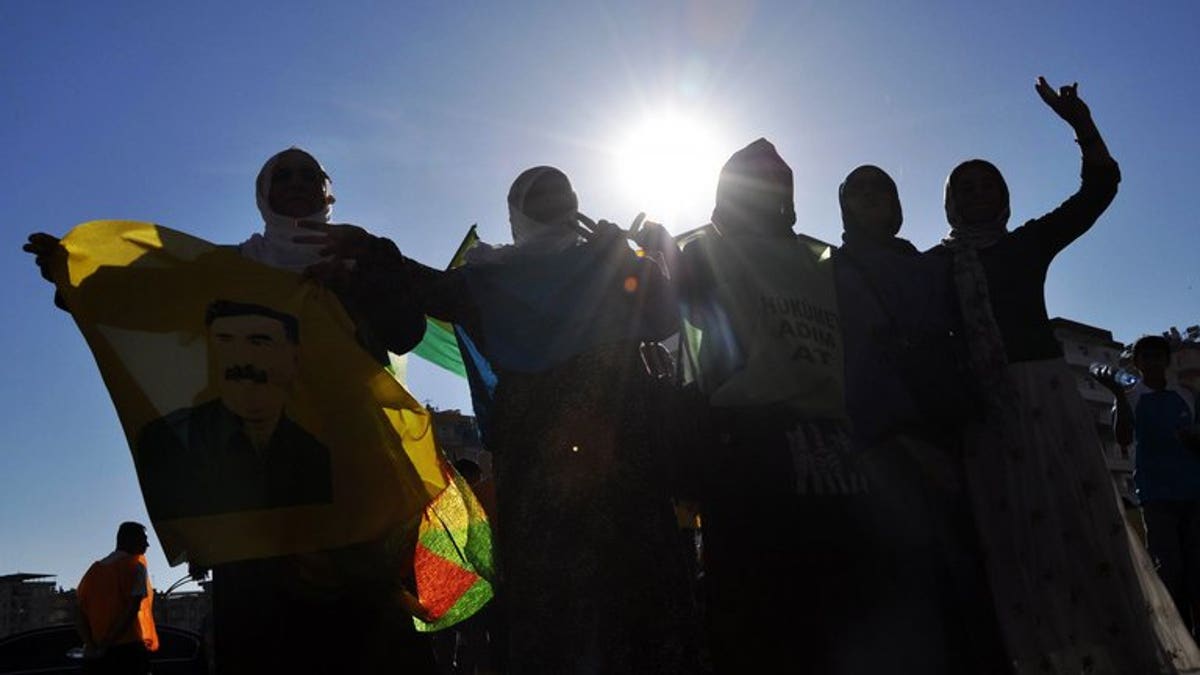
Kurds hold a rally in the Turkish city of Diyarbakir, on June 30, 2013. Turkey's highest court has allowed a Kurdish couple the right to name their daughter "Kurdistan", a word historically banned because it was considered seditious. (AFP/File)
ISTANBUL (AFP) – Turkey's highest court on Saturday allowed a Kurdish couple the right to name their daughter "Kurdistan", a word historically banned because it was considered seditious, local media said.
Turkish news agency Dogan said the appeals court overturned a lower court's decision to bar Yunus and Elif Toprak's from naming their daughter after the region Kurds consider to be their ethnic homeland.
The lower court had ruled the child's name was an "insult to society", and said the 23-month-old girl should instead be named Helin -- a common first name in Turkey's southwestern Sanliurfa province.
Dogan said the higher court quashed the ruling, citing every parent's right to be able to name their own children even though the origins of the name may be foreign.
Originally of Indo-European origin, the Kurds trace their roots back to the Medes of ancient Persia. Mainly Sunni Muslims, they live in the mountainous region straddling Iran, Iraq, Syria and Turkey, and have kept their language, culture and tribal system.
Kurds are neither Arabs, Turks or Persians and are therefore seen as a political threat by all four of the countries they inhabit.
Until 2002, Turkey banned the use of the Kurdish language and the teaching of it in schools, with the words Kurd and Kurdish barred in public discourse.
Authorities considered the use of the words an expression of support for the outlawed Kurdistan Workers' Party (PKK), which has called for independence and more recently autonomy for Kurd-populated regions in the country's south-east.
A fragile peace process in under way between the rebel group and Ankara, after the PKK's imprisoned leader Abdullah Ocalan called a historic ceasefire in March.
As part of the truce, the PKK agreed to withdraw its 2,000 estimated fighters from Turkey to their bases in northern Iraq.
The PKK took up arms for Kurdish self-rule in southeastern Turkey in 1984, sparking a conflict in which some 45,000 people are estimated to have died.
